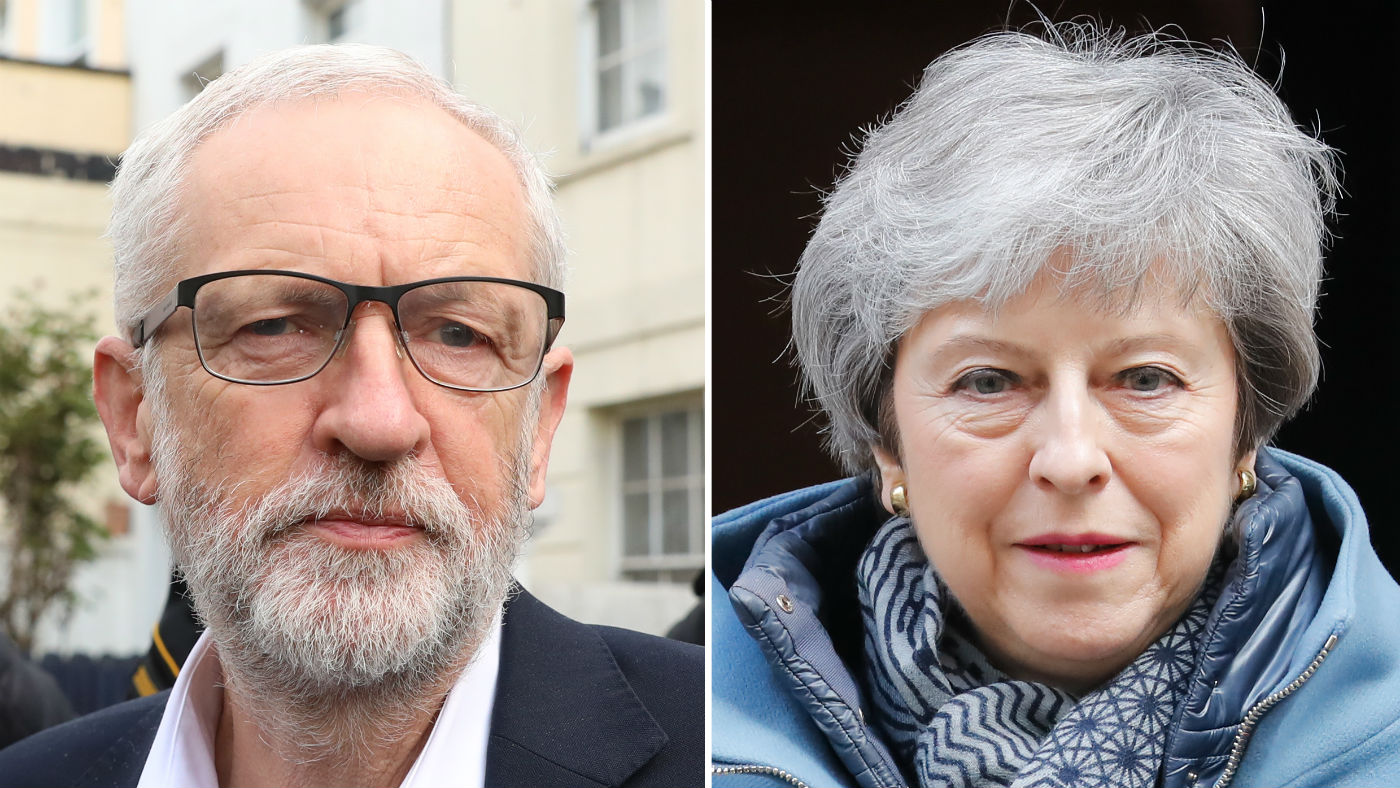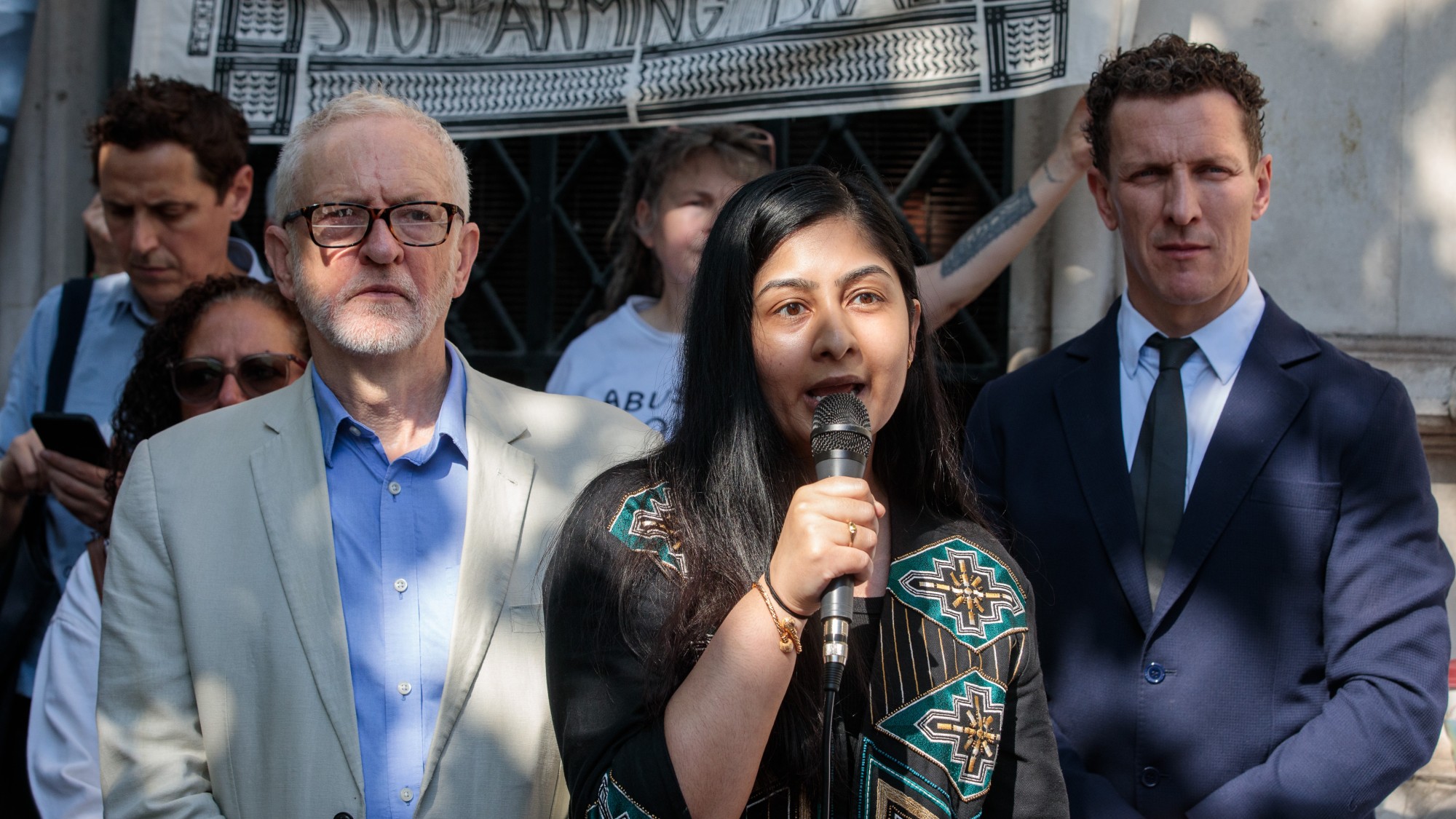Theresa May ‘war games’ second referendum
But Labour and Tories warn against cross-party concessions to secure quick Brexit deal

A free daily email with the biggest news stories of the day – and the best features from TheWeek.com
You are now subscribed
Your newsletter sign-up was successful
Theresa May has held secret talks over a possible second EU referendum ahead of crunch talks with Labour this week, which offer the last chance to secure a cross-party Brexit deal before European elections at the end of May.
The Daily Telegraph reports that the prime minister and her advisers have “war gamed” the possibility of giving voters a choice of her deal, no deal and remain, “though government sources insisted it would only become relevant if talks with Labour collapse and Parliament forces a vote on a second referendum”.
May has publicly opposed holding a second referendum but has said that if talks with Labour fail, parliament will be asked to vote on series of “indicative” options on how to break the impasse
The Week
Escape your echo chamber. Get the facts behind the news, plus analysis from multiple perspectives.

Sign up for The Week's Free Newsletters
From our morning news briefing to a weekly Good News Newsletter, get the best of The Week delivered directly to your inbox.
From our morning news briefing to a weekly Good News Newsletter, get the best of The Week delivered directly to your inbox.
Last week’s local election results saw both main parties take a drubbing, increasing the pressure on their leaders to deliver Brexit quickly. Both will be hoping a last-minute deal can avoid the need to hold European elections at the end of the month in which Remain and pro-Brexit parties are expected to perform well.
The Times reports that May will take “a final desperate gamble” to deliver Brexit this week by offering the Labour leader three major concessions in a bid to force MPs to back a new deal.
This will include a temporary customs union with the EU lasting until the next general election scheduled for 2022. Her team will also agree to align Britain with a wider range of EU single market regulations on goods, as well as enshrining in law that the UK will mirror all EU legislation on workers’ rights.
“The only question that matters is whether Theresa May and Jeremy Corbyn are really prepared to cut a cross-party compromise deal/cynical Westminster stitch-up (delete as appropriate) to pull Britain out of the EU by the end of next month,” says Politico’s Jack Blanchard.
A free daily email with the biggest news stories of the day – and the best features from TheWeek.com
An agreement between the two negotiating teams looks within touching distance “but both leaders face enormous pressure from their own parties not to cut a deal with the enemy — and nobody really knows how this is going to pan out”, he writes.
The Financial Times reports that “some allies of Corbyn are anxious about ending up in a ‘national government in all but name’ but without any ministerial posts — sharing the blame for any Brexit fallout with the Tories”.
Others think the only way to avoid being held partly responsible for facilitating a “Tory Brexit” would be to put a deal back to the people.
More than 100 opposition MPs from Labour, the SNP, Change UK and Plaid Cymru wrote to the prime minister on Sunday insisting they will not back a “Westminster stitch-up” unless she guarantees a second referendum.
The Guardian cites “senior Labour figures”, who said Corbyn will not be able to get enough of his MPs to back a Brexit deal without the promise of a second referendum.
“Senior party sources said they believe two-thirds of Labour MPs, including several shadow cabinet ministers and many more frontbenchers, would refuse to back a deal without a people’s vote attached,” the paper reports.
There would also be stiff opposition among Tory MPs to any cross-party deal that could scupper the prime minister’s plans.
One Conservative MP told the Telegraph “80 to 90%” of backbenchers were against a cross-party deal, suggesting May would struggle to get a deal through Parliament.
Iain Duncan Smith, the former Conservative leader, said: “We have always worked on the principle that Jeremy Corbyn is unfit for government, but with one bound we would be saying he must be fit to govern because we have allowed him to steer this deal.”
-
 How to Get to Heaven from Belfast: a ‘highly entertaining ride’
How to Get to Heaven from Belfast: a ‘highly entertaining ride’The Week Recommends Mystery-comedy from the creator of Derry Girls should be ‘your new binge-watch’
-
 The 8 best TV shows of the 1960s
The 8 best TV shows of the 1960sThe standout shows of this decade take viewers from outer space to the Wild West
-
 Microdramas are booming
Microdramas are boomingUnder the radar Scroll to watch a whole movie
-
 How corrupt is the UK?
How corrupt is the UK?The Explainer Decline in standards ‘risks becoming a defining feature of our political culture’ as Britain falls to lowest ever score on global index
-
 The high street: Britain’s next political battleground?
The high street: Britain’s next political battleground?In the Spotlight Mass closure of shops and influx of organised crime are fuelling voter anger, and offer an opening for Reform UK
-
 Biggest political break-ups and make-ups of 2025
Biggest political break-ups and make-ups of 2025The Explainer From Trump and Musk to the UK and the EU, Christmas wouldn’t be Christmas without a round-up of the year’s relationship drama
-
 ‘The menu’s other highlights smack of the surreal’
‘The menu’s other highlights smack of the surreal’Instant Opinion Opinion, comment and editorials of the day
-
 Is a Reform-Tory pact becoming more likely?
Is a Reform-Tory pact becoming more likely?Today’s Big Question Nigel Farage’s party is ahead in the polls but still falls well short of a Commons majority, while Conservatives are still losing MPs to Reform
-
 The launch of Your Party: how it could work
The launch of Your Party: how it could workThe Explainer Despite landmark decisions made over the party’s makeup at their first conference, core frustrations are ‘likely to only intensify in the near-future’
-
 Taking the low road: why the SNP is still standing strong
Taking the low road: why the SNP is still standing strongTalking Point Party is on track for a fifth consecutive victory in May’s Holyrood election, despite controversies and plummeting support
-
 Your Party: a Pythonesque shambles
Your Party: a Pythonesque shamblesTalking Point Comical disagreements within Jeremy Corbyn and Zarah Sultana's group highlight their precarious position